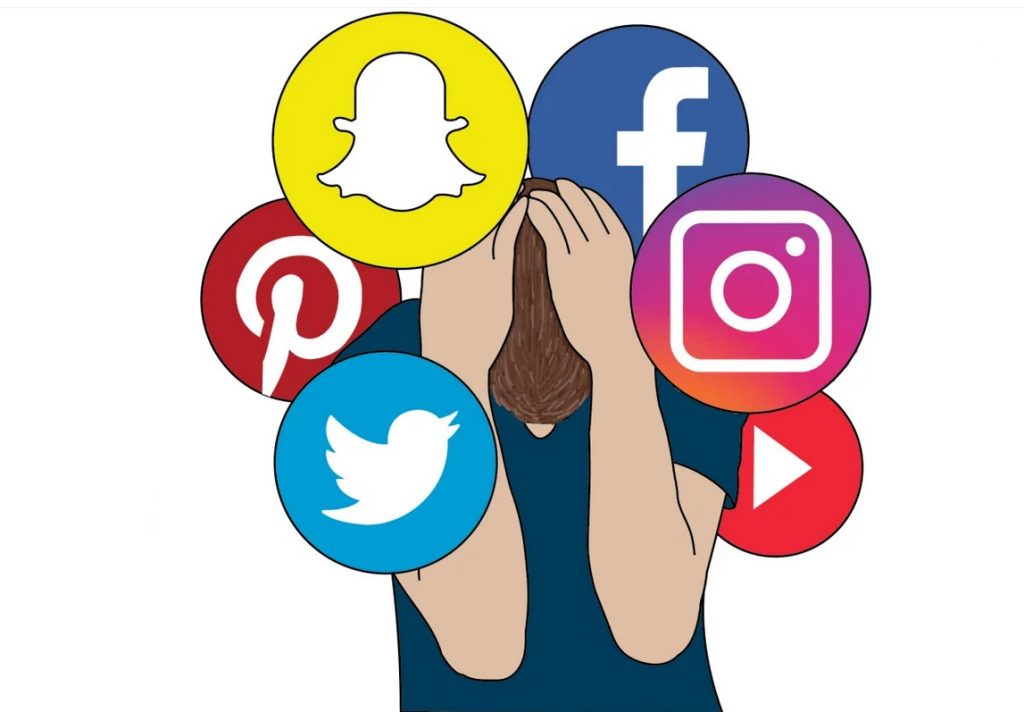

Social media use among young people is nearly universal, with up to 95% of teenagers, and even 40% of children aged 8-12, on social media.1,2 Despite this widespread use among children and adolescents, we do not yet have enough evidence to determine if social media
use is sufficiently safe for them—especiallyduring adolescence, a particularlyvulnerable period of brain development.


Different children and adolescents are affected by social media in different ways based on their individual strengths and vulnerabilities and based on cultural, historical, and socio-economic factors.3,4 Social media can provide benefits for somechildren, including by serving as a source of connection for youth who are often marginalized, such as the LGBTQ+community and peoplewith disabilities, providing positiveor identity-affirming content, creating a space for self-expression, and helping youth feel accepted. However, increasingly, evidenceisindicating thereisreason tobeconcerned about therisk of harm social media use poses to children and adolescents. Children and adolescents on social media are commonly exposed to extreme, inappropriate, and harmful content, and those who spend more than 3 hours a dayon social media facedoublethe risk of poor mental health including experiencing symptoms of depression and anxiety.5 This is deeply concerning as a recent survey often teenagers showed that, on average, they spend 3.5 hours a day on social media.
Social media can expose children to content that presents risks of harm:
• Social media may perpetuate bodydissatisfaction,disordered eating behaviors, social comparison, and low self-esteem, especially among adolescent girls.7,8.9.10
• When asked about the impact of social media on their body image: 46% of adolescentsaged 13-17 said social media makesthem feel worse, 40% said it makesthem feel neither better nor worse, and only 14% said it makesthem feel better.11
• Roughly two-thirds (64%) of adolescents are “often” or “sometimes” exposed to hate-based content.12
• Some social media platforms show suicide- and self-harm-related content including even livedepictionsof self-harm acts,content which, in certain tragiccases, has been linked to childhood deaths.
Social media use can be excessive and problematic for some children:
• On a typical weekday, nearlyone-in-three adolescents report using screens (most commonly social media) until midnight or later.
• Studies have shown a relationship between excessive social media use and poor sleep quality, reduced sleepduration,sleepdifficulties, and depression among youth.
• One-third or more of girls aged 11-15 say they feel “addicted” to certain social media platforms and over half of teenagers report that it would be hard to give up social media.
There is broad concern among the scientificcommunitythat a lack of accesstodata and lack of transparency from technologycompanies have been barriersto understanding the full scope and scale of the impact of social media on child and adolescent mental health and well-being.While more research is needed to fully understand the impact of social media,this gap in knowledgecannot be an excuse for inaction.
This burden cannot simply fall to parents and children.We must engage in a multifaceted effort to maximizethe benefits and reducethe risk of harm posed by social media,with actionstaken by groups acrossthe spectrum: policymakers,technologycompanies,researchers, families, and children and adolescents themselves.
• Policymakers can take stepsto strengthen safety standards and limit access in waysthat make social media safer for children of all ages, better protect children’s privacy, support digital and media literacy, and fund additional research.
• Technology companies can better and moretransparently assessthe impact of their products on children, share data with independent researchers to increase our collective understanding of the impacts, makedesign and development decisionsthat prioritize
safety and health – including protecting children’s privacy and better adhering to age minimums – and improve systems to provide effective and timely responses to complaints.
• Parents and caregivers can make plans in their households such asestablishing tech-free zonesthat help protect sleep and better foster in-person relationships,teach children and adolescents about responsibleonline behavior, and model that behavior, and report problematic content and activity.
• Children and adolescents can adopt healthy practices like limiting timeon platforms,blocking unwanted content, being careful about sharing personal information, and reaching out if theyor a friend need helpor see harassment or abuseon the platforms.
• Researchers can further prioritize social media and youth mental health research that can support theestablishment of standards and evaluation of best practicesto support children’s health.
For more information on social media
and youth mental health, read the
Surgeon General’s Advisory:
surgeongeneral.gov/ymh-social-media
+ Full Styling Manual The Vanskere’s diffusion line - Signore Fusion, has reimagined its …
Temi Otedola, is a Nigerian actress, fashion influencer, and entrepreneur who has carved her own niche…
Celebrating Excellence: Fashion, Beauty & Lifestyle Recognition Awards 2025 As the world of fashion, beauty,…
A Mother's Love: Honoring the Life and Legacy of Mrs. Olufunmilayo Christiana Latunji The bond…
Dripped In Culture In the dynamic world of fashion, where tradition often meets modernity, Ogiame…
Latasha Ngwube: The Plus Size Queen of Fashion Strikes Again Latasha Ngwube, Media /Pr Guru, …